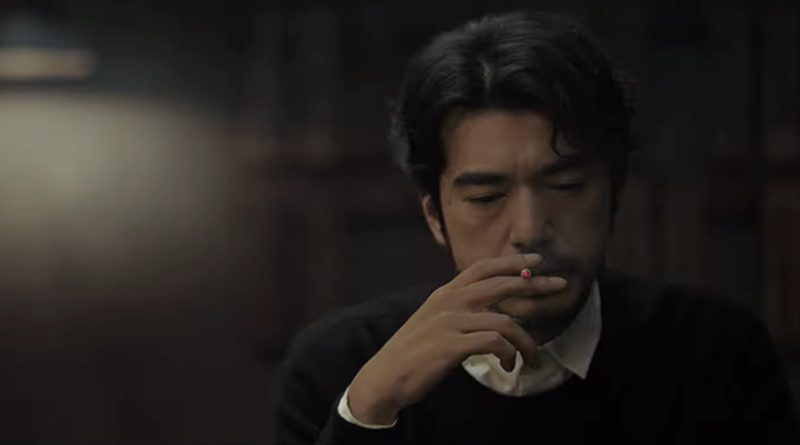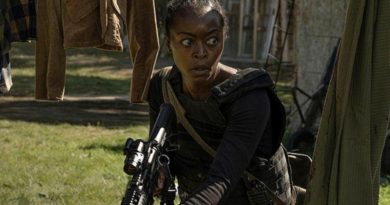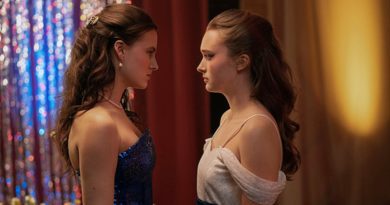Sons of the Neon Night 風林火山 Review: Juno Mak’s Long-Delayed Sophomore Directorial Effort is a Bust
After a seemingly indefinite wait since wrapping production between 2017 and 2018, the long-delayed Sons of the Neon Night is finally here. My feeling after watching Juno Mak’s would-be masterpiece of an epic Hong Kong crime thriller with a stacked cast is equivalent to a scene from Pang Ho-Cheung’s Vulgaria. The part where Tyrannosaurus (Ronald Cheng), the triad leader who is also a movie investor, can’t believe what he sees on the big screen before spewing a torrent of profanities at the producer (Chapman To) for such an unwatchable movie.
It’s a frustrating two-hour-plus experience that it’s hard to believe this is a work from Juno Mak, a promising filmmaker who made quite an impression in revitalising the long-dormant geong si (hopping vampire) genre in Rigor Mortis. There has been news about Mak’s original cut stretching around six to seven hours, but what we have here instead is the current two-hour-plus version. But it’s only fair and possible to review whatever version is publicly available rather than delving into the what-ifs surrounding the original cut.
The movie opens with a peculiar scene, reminiscent of a music video: Moreton Li (Takeshi Kaneshiro) wakes up in an empty cross-harbour tunnel. Just him and a bed placed in the middle of the road. It looks cool both visually and aesthetically, suggesting Moreton rules the city of Hong Kong, which allows him to do whatever he wants, albeit in an alternate reality set in 1994.
A reality that isn’t the familiar bustling Hong Kong landscape typically seen in the movies, but rather a gloomy Gotham-like city with falling snow. We learn that Moreton is an heir to the pharmaceutical empire, which also deals with selling cocaine as part of the larger business. His ailing kingpin father (Wang Deshun) is in the hospital.
So, within the first act, a few things happen: A pair of masked gunmen shoot everyone randomly in the middle of the crowded Causeway Bay, marking the movie’s first major action set-piece. The Causeway Bay scene itself is actually a 1:1 replica of the district built at a steel plant in Huizhou, China, spanning 600,000 square feet. Shooting at an actual location is logistically impossible, especially given the scene requiring a large-scale shootout. This takes up a large chunk of the movie’s budget, reportedly costing a whopping HK$400 million to produce, making it one of the most expensive Hong Kong films ever made.
As much as I admire Mak’s passion for going the extra mile, the much-anticipated Causeway Bay shootout is curiously hollow. The over-reliance on CGI doesn’t justify the hefty budget because it looks flimsy. It makes me wonder if Mak already set up a 1:1 replica of the snow-covered Causeway Bay, why not go all the way by sticking to (largely) practical stunts instead? And for all the chaos, (Johnny) Tang Shui-Wa’s action direction, who choreographed two of the Breakout Brothers trilogy and The Goldfinger, is sadly lacking the much-needed visceral flair that a good Hong Kong action movie should be.
Mak, who also wrote the screenplay, soon introduces more characters. This includes Wong Chi Tat (Lau Ching-Wan), a shady police officer under the Narcotics Bureau who has a sick daughter. There’s Dik Man-Kit (Tony Leung Ka-Fai), a shadier veteran cop who works for both sides of the law, including serving the highly influential Li family. Wait, there’s more: A group of “cleaners” led by Ching Man-Sing (Louis Koo); Moreton’s fugitive elder brother, Maddox (Alex To), who wants to take over the family business; and Moreton’s manipulative therapist-wife, Lau Sze Yan (Gao Yuanyuan), who has her own agenda.
Not to forget, Mak (Juno Mak himself), who appears as a disillusioned undercover cop, ends up committing suicide by blowing himself up in the very hospital where Moreton’s father happens to be. There are plenty of stories to cover here, but too bad Mak and veteran editor William Chang could only muster a movie that is choppily edited, to the point it becomes incoherent. Various motivations are laid out but vaguely executed. The entire story is as muddled as it gets, no matter how hard I try to put two and two together.
Mak’s penchant for a desaturated visual palette looks as if he wants his movie to be an atmospheric noir, but the approach is awfully misguided, with all the dim lighting and murky cinematography that I find it a visual torture watching it in the cinema. Everyone here is mostly dressed in monochrome clothes, and so is the background, with only some shades of colours popping out. Such a result makes most of the action scenes hard to decipher what’s going on, let alone appreciate the choreography.
The movie is also rated under Category III with plenty of violence and profanity. While it’s a refreshing change of pace to see established actors like Lau Ching-Wan, Louis Koo and even Paw Hee-Ching spewing expletives, it’s all colourful dialogue with barely an impact in making their words sing. It’s bland and, dare I say, lifeless and even with Mak going as far as killing some of the major characters in Sons of the Neon Night just to spice things up, his overall sophomore directorial effort is a huge missed opportunity.
The other unforgivable thing that he does to this movie? Wasted the talents of a star-studded cast that everyone here is more like a pawn showing up for his movie rather than bringing out the best in them for delivering commendable acting performances.





